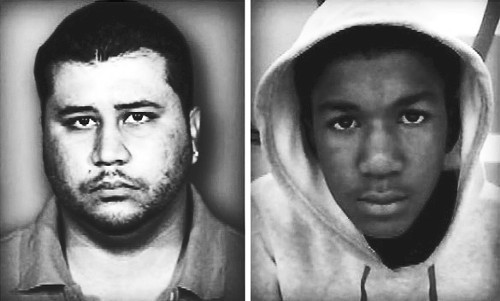
Consider this a second take on the essay I wrote this week entitled “Two Trials,” which compared and contrasted the O.J. Simpson and George Zimmerman murder trials and conveyed my view that both cases were skewed by an overdose of racial perspectives.
I appreciate all the comments appended to that piece and all the points of view I hear expressed on all the TV forums, some of them well-intentioned, some of them not. What mainly concerns me is the extreme prevalence of red herrings in so many of the ongoing discussions about the Zimmerman case.
Red herrings:: I’ve already indicated I thought race was one. I’ll do some add-ons. Upon further reflection, Florida’s “Stand Your Ground” law, which I expressed implicit criticism of in the original essay, is another. And genderism: I have since heard someone contend quite seriously on CNN that a jury of “six white women” (actually five “whites” and one Hispanic) could never have grasped the state of mind when Trayvon Martin, young, male, and African-American, turned on someone he regarded as his pursuer..
Not that there isn’t some sense to all of these memes, but that’s what they all are: just memes, self-contained little tautologies, and none of them touch the heart of the case. The one word which comes closest to getting at the fundamental problem that ended with the death of Trayvon Martin is “vigilantism,” and, to extend that concept more fully, vigilantism coupled with an absurd amount of gun permissiveness. Another word that comes close?: “macho,” which, writ large, is a sense that “I, not the law, am the law.”
POINT ONE: Lookit, no private citizen, no one who isn’t a law enforcement officer, has any business stalking someone else on a dark street with a gun. Just think about it. George Zimmerman was advised to cease and desist when he phoned in his suspicions about Trayvon Martin to a dispatcher, and he ignored that perfectly good advice.
Under the circumstances — under any circumstances — to do what Zimmerman did would be over-the-top provocative and asking for big trouble.
POINT TWO: To do what Trayvon Martin did, whether scared, angry, or just fed up with being stereotyped — i.e., to physically attack someone else holding a gun — is insanely reckless. (This is true whether he knew Zimmerman was armed or not; given the degree of 2nd Amendment fetishism these days, it may be impossible to judge that for certain about another individual who isn’t stark naked.)
You hear about people committing “suicide by cop?” Well, this, arguably, was a case of suicide by stalker.
The evidence in the case — however unpalatable to the legions of special-interest pleaders now exploiting the outcome for this or that pre-existing thematic purpose — is that Martin was the aggressor, the initiator of an altercation, the one on top meting out serious physical punishment, and doing all this to a man with a gun.
Was that brave, crazy, rash, or, again, suicidal? And Zimmerman: If he was indeed in the physical danger he says he felt himself to be in, he has no one to blame but himself for being in that kind of mortal peril. He, too: Had be died — from a blow to the head, say — could have been considered the victim of a kind of suicide.
It hardly matters who was black, who was white, or what it is that “Stand Your Ground” laws permit. There was enough logic to a self-defense argument to influence the jurors’ verdict, but even it is a stretch. Zimmerman wasn’t being followed, he was following someone else — and with a gun. And Trayvon Martin wasn’t some innocent, pure-hearted teenage Gandhi. He yielded to a dangerous macho impulse.
Nothing in the dialogue which allegedly began the confrontation between George Zimmerman and Trayvon Martin — “Why are you following me?” followed by “What are you doing here?” —- should have led to fatal consequences. Nothing in the racial makeup or perspective of either man should have, and nothing in the line item of “Stand Your Ground.”
That it did can ultimately be credited to the presence of a private individual’s gun and a feeling, significantly on George Zimmerman’s part but also on that of Trayvon Martin, that “I, not the law, will handle this,” the “this” being based, in both instances, on a stupid misapprehension.